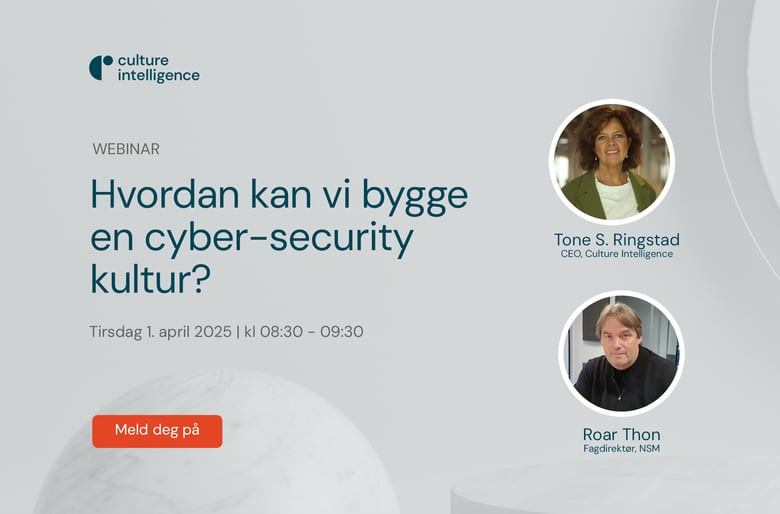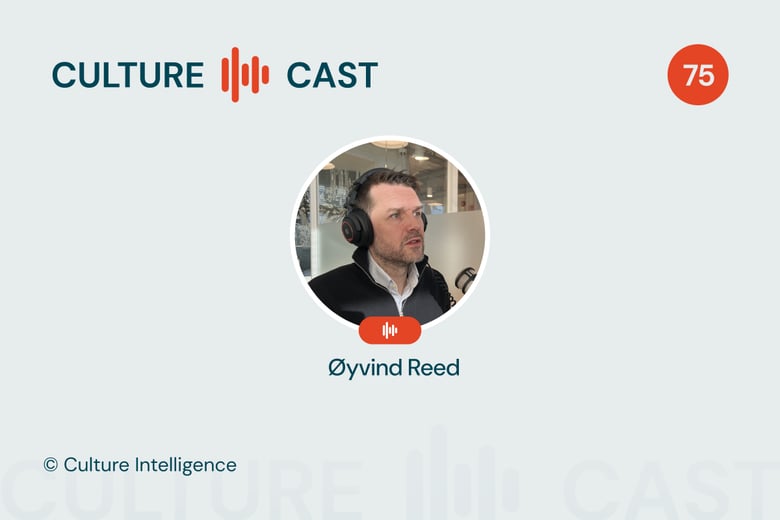The students’ nationalities were mixed, the gender well mixed and their master theses from a good mix of business areas. The objective of the Culture Hacking was to identify the actual Culture among them, and reflect on their alignment to the Millennial Culture Code.
The first part of the Hackathon was spent introducing the students for what culture is, why its important for both students and business, and preparing for the hacking. They were each linked to an individual online culture survey, built by values dilemmas, and asked to individually make priorities. The dilemmas chosen scored on a values framework. The results were presented immediately, as values priorities, mindset preferences and alignment to a predefined digital transformation culture. The second half of the Culture Hackathon was spent presenting their Actual culture results, while students discussing the results, commenting and making sense of the findings.
What did we find?
The scores from this Hackathon showed the following values priorities in the BI student population. The graph shows the top 10 values of the population, and the preferred mindset.
What did we learn?
In the following, students discussed the top 10 values findings with us, and we learned the following about their culture:
- Passion is by far their highest value (64%). They would simply not work for a company or a leader if they could not see the meaning or purpose of what they do. Commenting on this need, they confirmed the “stereotype” Millennial statement: I will not do it if it does not make sense to me. Combined with no three value, Pride, their comments were that they also wanted to work in a place where they could be proud of the company, and possibly also be acknowledged for working there.
- Self-development, curiosity, learning and insight all point to being a student, a learner, and being hungry for more. They know clearly that they still have a lot to learn. They are in their final phase of their grad-studies, but were focusing on how their coming work life would be. They will there most likely be looking for learning from the more experienced people in a team for a long time after they start working, and their success at work will depend heavily on that being encouraged and realistic.
- Quality was in the meaning of delivering good work, and being rewarded for it. This just states the obvious, that Master students want to do a good job in their degree and in the coming work assignments. Doing things right and deliver what is expected is a common value across all demographics.
- A very low score on Risk willingness was pointed out from the results. This turned out to be well understood in this group, being afraid of not making the right decision or solving the tasks right. From this, we learned that they are loyal to their teams in business in delivering quality, even if they may challenge the way to the solution.
- Openness is critical for students to get relevant info, learn from others and also share their ideas with others. Spreading good ideas, tuning in to new ways and having open dialogues about how to approach a challenge in the best way. This may well challenge their future employers existing team culture. Their link to learning was clear, “if people are not open we can´t learn from them”.
- Life balance was confirmed over and over again, and confirms another Millennial stereotype: “Life is not only about work. It is so much more and I need to have time for friends and fun”. So again referring to passion, when they work, it better be in something meaningful and fun!
- Synergy is the team engagement, and they point out the importance of working in good teams in their student workgroups, project tasks and future work teams. Their lack of experience is their biggest challenge, hence effective teamwork with more experienced people is critical.
In surge of the Millenial Culture
There are millions of articles published about the Millennial culture. Business-, student- and family people wonder who they really are, what they engage in and how to best engage and collaborate with them. Conventional wisdom previously published holds that Millennials are entitled, easily distracted, impatient, self-absorbed, lazy, and unlikely to stay in any job for long. (HBR, Bruce N. Pfau, 2016). They have been described as a group that either frustrates or excites their coworkers. When they bring their views into the existing business structure both the millennial and the managers may get frustrated. They are blamed for confusing the existing, not following the established rules and being passionate about what they do and set clear requirements to the companies they work for.
Analysing the Millennial culture
Based on the Culture Hackathon at BI we have found some key insights in the Millennial culture. This is by no means representative for a global Millennial culture, but to our pleasant surprise were in line with a major part of the general perception of their culture. In our study, we conclude the following regarding the published theories about Millennials:
- They are passionate and need to have pride in what they do
- The focus on learning and self development was confirmed, possibly even overemphasized. This may be because they are Master students, not only an average Millennial.
- The life balance dilemma is confirmed, also triggered by the ambition to deliver quality work while having fun and seeing friends.
- Openness to others and the need to be working collaboratively in great teams are confirmed
- The creativity, insights and aspirations for finding new ways to solve problems were obvious and confirmed
- The low score on risk has not been defined in the published literature. Quite the contrary, they have often been described as high risk takers, which we could not find in our data.
- The value of autonomy was not scored highly in our data, hence may be overruled by the team focus. This may again be due to student programs.
What does this mean for you as their coming leader?
Getting these people on board will be just as exciting as you think. They will work hard, search for information and learning from your existing teams. Many of them will challenge their peers, maybe even you, but with a good intent. They will be curious to who you are, not only what you do, or have done, and will want to show you that they belong in your attention radar.
In return, they want you to not only lead a good company, but also build a great company, with a purpose beyond making money. They will do their best to learn from everybody, but if they have other solutions, they expect you to listen and test it.
The Millennial culture code has only started to be put into action. We suspect, however, that Millennials hold a lot of the values that are needed for building cultures that will make the digital transformations in companies. In some companies, they have already starting to have management positions due to their capabilities in certain areas. As sometimes said about culture in general, it may be your biggest asset or your biggest barrier. The critical issue is knowing how the Millennials will fit into your existing company culture, and identify the gaps you have to work within order to make Millennials your best asset?



